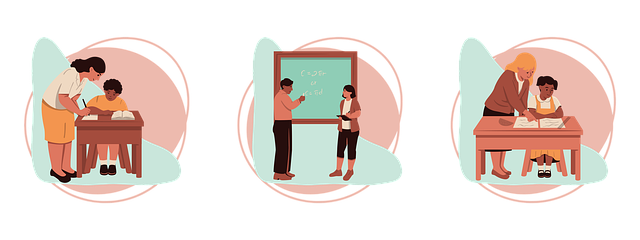To navigate Oregon's legal system for grandparental rights, understand key terms like custody, guardianship, and conservatorship, which respectively concern child decision-making, caring for adults unable to make decisions, and establishing parental rights. While state laws and regulations in family law, guardianship, and elder care are crucial, specialized professionals guide grandparents through custody, visitation, and establishing their rights, ensuring balanced interests with parents and the well-being of children or elderly relatives. Legal Aid and Pro Bono services offer affordable and free assistance to low-income grandparents, while meticulous document gathering and note-taking build strong cases for legal support in Oregon.
In Oregon, navigating legal support as a grandparent can be complex. This guide provides a comprehensive overview of your rights and available resources. Understanding key legal terms and how they apply to your situation is crucial. Explore different types of legal support tailored for grandparents, from family law services to pro bono aid. Learn tips on building a strong case through effective evidence collection and documentation. By mastering these aspects, you’ll be better equipped to navigate Oregon’s legal landscape with confidence.
- Understanding Legal Terms and Rights in Oregon
- Types of Legal Support Available for Grandparents
- Navigating Family Law in Oregon: A Grandparent's Guide
- Accessing Legal Aid and Pro Bono Services
- Building a Strong Case: Evidence and Documentation Tips
Understanding Legal Terms and Rights in Oregon

Navigating the legal system can be overwhelming, especially when it involves matters as sensitive as grandparental rights. In Oregon, understanding your legal terms and rights is crucial when seeking support for your grandparent’s case. Legal support in Oregon goes beyond simply knowing your rights; it involves a deep understanding of state laws and regulations pertaining to family law, guardianship, and elder care.
Terms like “custody,” “visitation,” “guardianship,” and “conservatorship” are common in such cases. Grandparents seeking legal support must be adept at distinguishing between these concepts and their implications. For instance, while custody refers to the legal decision-making rights for a child, guardianship pertains to the responsibility of caring for and making decisions on behalf of an adult individual who is unable to do so themselves. Oregon’s legal framework provides guidelines and protections for all parties involved, ensuring that grandparent’s rights are considered alongside those of parents and the well-being of the child or elderly relative.
Types of Legal Support Available for Grandparents

In Oregon, grandparents seeking legal support have several options available to them, each tailored to address unique family situations. Understanding the types of legal services can be a game-changer for those navigating complex family law issues. From custody and visitation rights to establishing grandparent’s rights, legal professionals specializing in family law can provide guidance and representation. These experts help grandparents navigate the court system, ensuring their voices are heard and their interests protected.
Legal support may involve drafting and filing necessary documents, negotiating settlements, or representing clients in court. It also extends to assisting with adoption processes, guardianship arrangements, and providing advice on various family-related matters. With the right legal assistance, grandparents can gain clarity, protect their parental rights, and make informed decisions regarding their involvement in a grandchild’s life, fostering strong familial bonds within the laws of Oregon.
Navigating Family Law in Oregon: A Grandparent's Guide

Navigating Family Law in Oregon can be a complex process, especially for grandparents seeking legal support. Oregon’s family law system is designed to protect the best interests of children and facilitate fair resolutions in divorce, custody, and visitation cases. Grandparents often find themselves on the sidelines, eager to maintain or establish meaningful relationships with their grandchildren. Understanding the legal framework and available resources is crucial for ensuring their rights are protected and their involvement in their grandchildren’s lives is supported.
In Oregon, family law matters can involve various court processes, such as petitioning for custody or visitation rights. Grandparents may need to familiarize themselves with terms like legal guardianship, conservatorship, and parental rights. Legal support from an experienced attorney who specializes in family law can be invaluable. They can guide grandparents through the system, explain their rights and responsibilities, and advocate for their interests in court. Organizations dedicated to providing resources and education to grandparents are also available, offering guidance tailored to Oregon’s laws and regulations.
Accessing Legal Aid and Pro Bono Services

Understanding legal support in Oregon is crucial for grandparents seeking assistance with custody, visitation, or other family law matters. Legal Aid services play a vital role in providing affordable and accessible legal aid to low-income families, including grandparents. These organizations often offer free or low-cost counseling, representation, and advocacy to ensure that all Oregonians have equal access to justice.
Additionally, Pro Bono services are available for those who need legal assistance but may not qualify for Legal Aid. Many lawyers and law firms across Oregon volunteer their time and expertise to provide free legal services to grandparents in need. These services can be accessed through local bar associations or specialized legal clinics, offering a network of support tailored to family law issues.
Building a Strong Case: Evidence and Documentation Tips

When building a strong case for legal support in Oregon, understanding what evidence and documentation are crucial is essential. As you prepare your claim, gather all relevant documents that support your grandparent’s situation. This might include birth certificates, adoption records (if applicable), financial statements, medical reports, and any communication with social services or other relevant authorities.
Organize these documents carefully to ensure their authenticity and relevance. Take notes detailing important dates, events, and conversations. These will help strengthen your narrative and provide a clear picture of the challenges faced. Understanding legal support Oregon offers can be enhanced by being meticulous in your documentation process, which will ultimately aid in presenting a compelling case.














